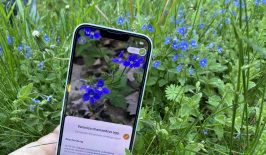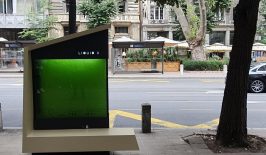When it comes to water scarcity, there are often some common misconceptions. One notable one is that water scarcity simply means a lack of any water whatsoever, but this is often not the case. Across the world, regions impacted by water scarcity may in fact have ample access to groundwater, but no reliable means of purifying or making it safe for consumption.
Various novel purification methods have been developed over the recent years, but one Swedish startup, Wayout, has combined water cleaning technology with the new micro-factory concept.
Originally developed as a means to break into the burgeoning local microbrewery scene, Wayout has since used its technology to tackle the issue of water scarcity and plastic pollution. Their shipping container-sized purification plant can clean any type of water entered into the system, such as groundwater, resulting in up to 8,000 litres of clean drinkable water per day — enough for around 2,000 people. Within the cleaning process, all salts and contaminants are removed and replaced to create well-balanced, remineralised water.
The micro-factory, which can be powered by solar panels, is also designed to be built locally from sustainable materials, reducing the resource burden of construction and logistics. Once installed on site, the Wayout is expected to make further sustainability savings by reducing the number of plastic bottles needed, as well as short and long-haul water logistics.
Additionally, the microfactory comes packaged with a suite of Internet of Things digital technology to monitor and provide consumption information about the unit. The plant’s 10-litre stainless steel ‘smart kegs’ feature a digital ID chip which monitors cleanliness and purity, while the systems taps also record usage every time they are used. This information can provide owners and managers with important insights into the capacity, use and maintenance requirements, allowing it to be better suited to local needs.
Wayout operates via a leasing model with no initial investment from customers. Water is then sold on a by-litre basis, with the cost modified to local economic conditions. However, even with these modifications, Wayout appears to be most directly targeting private home users and the hospitality sector, as opposed to communities in critical or dire need of drinking water.
But even here, an important difference can be made. The need to transport drinking water to homes, hotels and other infrastructure placed an additional burden on the environment, especially in regard to fuel use, land damage and waste. Plastic bottles for example, either need to be recycled on-site — which is often infeasible — or additional trucked out of areas. Given the cost and complexity, it’s not unlikely for waste to be simply dumped locally.
Wayout is currently being used at the Asilia’s Sayari Camp, a safari operator in Tanzania. The Serengheti has ample local groundwater, but remote locations have no means to purify it on-site. The Wayout has now been used at the camp since early 2020, and reportedly could cut plastic bottles by up to 18,000 per year. Furthermore, by making drinking water easier and more convenient to access, Wayout also suggests they optimise the time of onsite rangers, giving them more time to dedicate to their responsibilities.
The Wayout design appears the confluence of micro-factory technology and water purification. The former concept is an emerging idea which aims to create small, localised industrial units that are often self-operating, backed with artificial intelligence and specifically designed to reduce logistics and serve local purposes. For example, RESET has previously covered a New York-based micro-factory dedicated to recycling.
There are, of course, many ways to purify water and some of these techniques are likely more suitable for remote, off-grid communities than a micro-factory. Approaches include filtration nanomembranes, solar condensers and using the sun to disinfect water — all of which require no electrical power.








